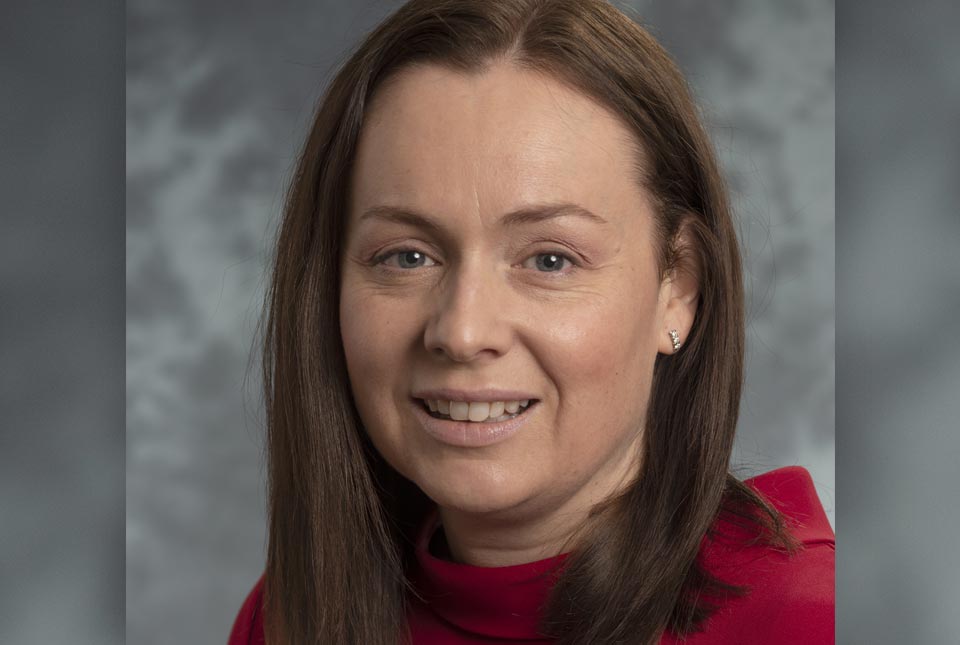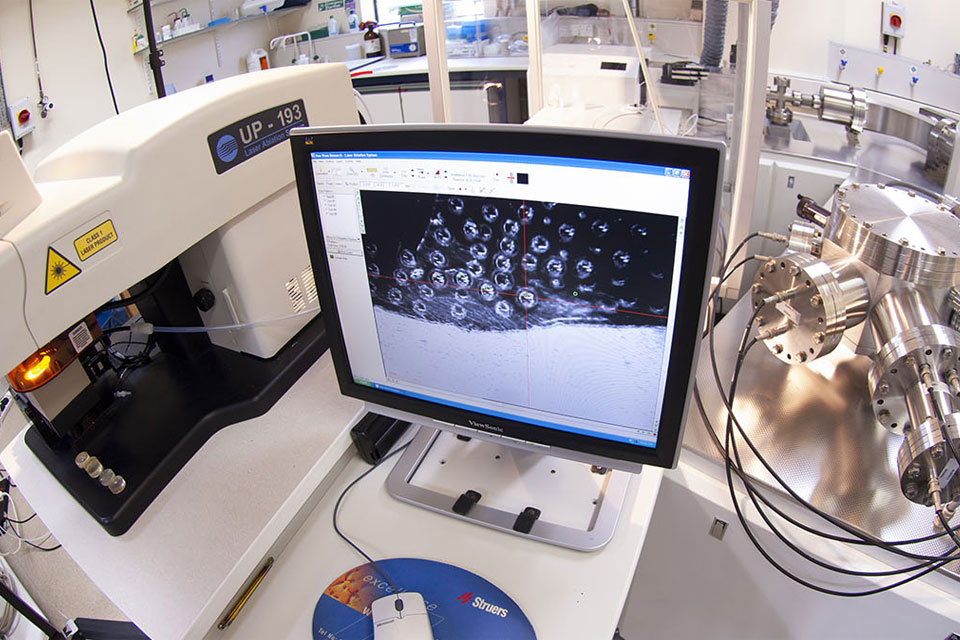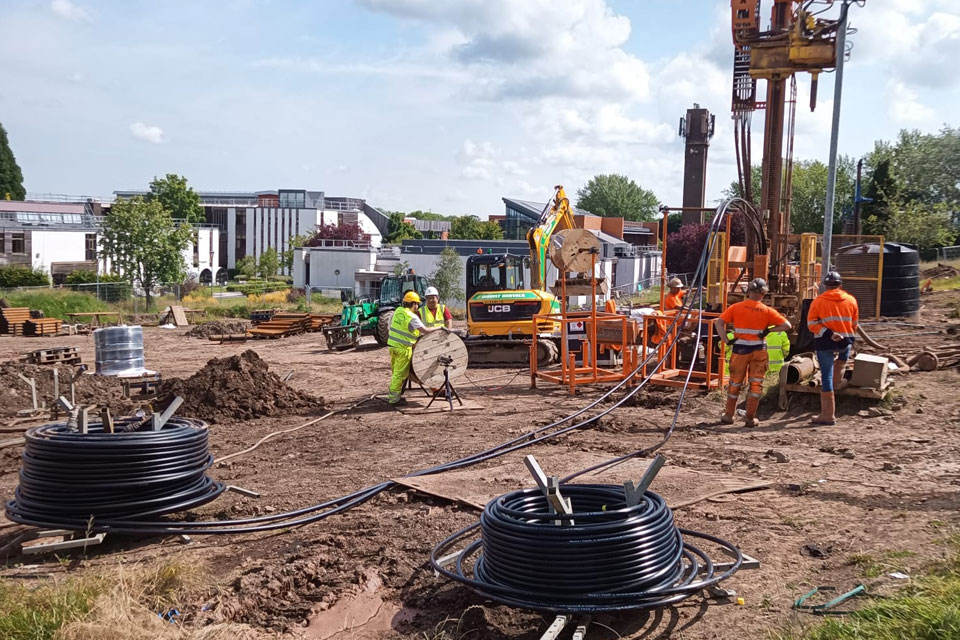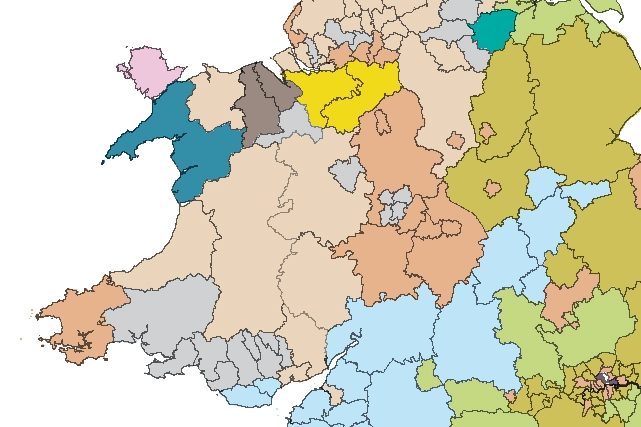Michelle Bentham appointed BGS Chief Scientist for Decarbonisation and Resource Management
Michelle is a geoscientist, with over 20 years of experience in the field of energy decarbonisation at BGS, with a focus on Carbon Capture and Storage.
23/02/2022 By BGS Press
Michelle Bentham has been appointed as the new BGS Chief Scientist for Decarbonisation and Resource Management from 1 May 2022.
Michelle will oversee the delivery of fundamental scientific research to decarbonise energy and industry, to use resources more optimally and to expand the delivery of affordable, sustainable energy across the world. As a member of the BGS Science Strategy group, Michelle will also help shape the science strategy consultation to deliver our new science strategy from 2023.
Based at the BGS Headquarters in Keyworth, Nottingham, but working across all BGS sites, this role takes leadership of around 100 scientific staff. One of the first tasks will be to work with the BGS Senior Management Board and Science Strategy Group to develop the next BGS strategy.
I am excited to be taking on the role of BGS Chief Scientist of Decarbonisation and Resource Management. I am looking forward to re-engaging in the science of decarbonisation and resource management and working closely with colleagues in an area that is fundamentally important for our planets future and personally matters to me.
Michelle Bentham, currently BGS Head of Partnerships and Innovation.
Michelle is a geoscientist with over 20 years of experience in the field of energy decarbonisation at BGS, with a focus on carbon capture and storage. She has worked on a large range of decarbonisation projects, including working with the research community, industry and government as a senior research scientist and project leader. Michelle’s research has focused on the potential for carbon dioxide storage in the UK, focusing on developing a portfolio of storage solutions and classification schemes.
Michelle is currently BGS’s Head of Partnerships and Innovation, facilitating the development of innovative technologies and methodologies from research into wider society for business, government and civil society to maximise research impact.
On behalf of BGS and the BGS Board, we are delighted to welcome Michelle into this role. Her proven track record in energy decarbonisation research, along with her passion for geoscience providing solutions to the global climate crisis, will be fundamental to driving forwards the BGS Science Strategy. With Michelle’s experience in leadership and management roles within BGS, I am thrilled that she will lead the decarbonisation and resource management challenge in the next phase of the organisation’s science strategy.
Karen Hanghøj, BGS Director.
For further information please contact the BGS press office:
About the British Geological Survey
The British Geological Survey (BGS) is a world-leading applied geoscience research centre that is part of UK Research and Innovation (UKRI) and affiliated to the Natural Environment Research Council (NERC). BGS’s core science provides objective and authoritative geoscientific data, information and knowledge to inform UK Government on the opportunities and challenges of the subsurface. It undertakes national and public good research to understand earth and environmental processes in the UK and globally. BGS’s annual budget of approximately £60 million is funded directly by UKRI, as well as research grants, Government commissions and private sector contracts. Its 650 staff work across the UK with two main sites: the head office in Nottingham and at the Lyell Centre, a joint collaboration with Heriot-Watt University in Edinburgh. BGS works with more than 150 private sector organisations, has close links to 40 universities and sponsors about 100 PhD students each year.
Related news

Call for new members and Chair to join the NERC facilities steering committees
25/02/2026
New members are needed to join the committees over the next four years.

Your views wanted – developing a ‘Geothermal energy subsurface data portfolio’
24/02/2026
BGS is aiming to support the growth of the sector by providing the best-available, location-specific geothermal and ground source heat information as an accessible product or service.

Map of BGS BritPits showing the distribution of worked mineral commodities across the country
18/02/2026
BGS’s data scientists have generated a summary map of the most commonly extracted mineral commodities by local authority area, demonstrating the diverse nature of British mineral resources.

Funding awarded to map the stocks and flows of technology metals in everyday electronic devices
12/02/2026
A new BGS project has been awarded Circular Electricals funding from Material Focus to investigate the use of technology metals in everyday electrical items.

New UK/Chile partnership prioritises sustainable practices around critical raw materials
09/02/2026
BGS and Chile’s Servicio Nacional de Geología y Minería have signed a bilateral scientific partnership to support research into critical raw materials and sustainable practices.

Extensive freshened water confirmed beneath the ocean floor off the coast of New England for the first time
09/02/2026
BGS is part of the international team that has discovered the first detailed evidence of long-suspected, hidden, freshwater aquifers.

Funding secured to help mitigate ground risk in UK construction sector
05/02/2026
The BGS Common Ground project has been awarded new funding to help unlock the value of ground investigation data.

Can sandstones under the North Sea unlock the UK’s carbon storage potential?
02/02/2026
For the UK to reach its ambitious target of storing 170 million tonnes of carbon dioxide per year by 2050, it will need to look beyond the current well-studied geographical areas.

Quaternary UK offshore data digitised for the first time
21/01/2026
The offshore wind industry will be boosted by the digitisation of a dataset showing the Quaternary geology at the seabed and the UK’s shallow subsurface.

Suite of ten new soil reference materials released
02/01/2026
BGS has a longstanding track record of producing high-quality reference materials and has released ten new soil reference materials.

Perth and Kinross tops the UK’s earthquake activity charts for 2025
29/12/2025
Seismologists at BGS have published data on the number of seismic events over the past 12 months with over 300 earthquakes recorded.

BGS awarded funding to support Malaysia’s climate resilience plan
17/12/2025
The project, funded by the Foreign, Commonwealth & Development Office, will focus on minimising economic and social impacts from rainfall-induced landslides.


